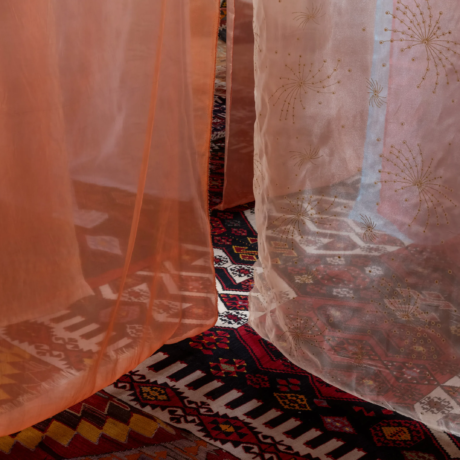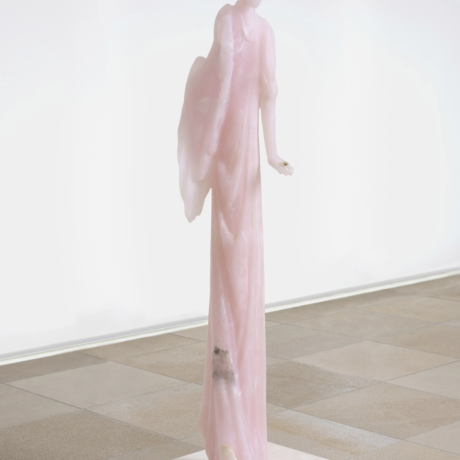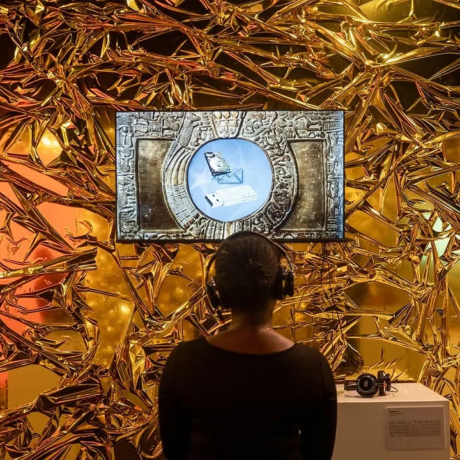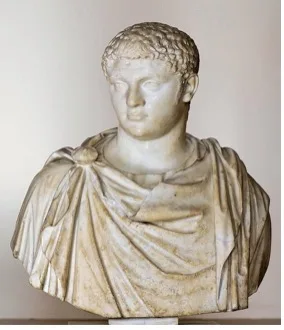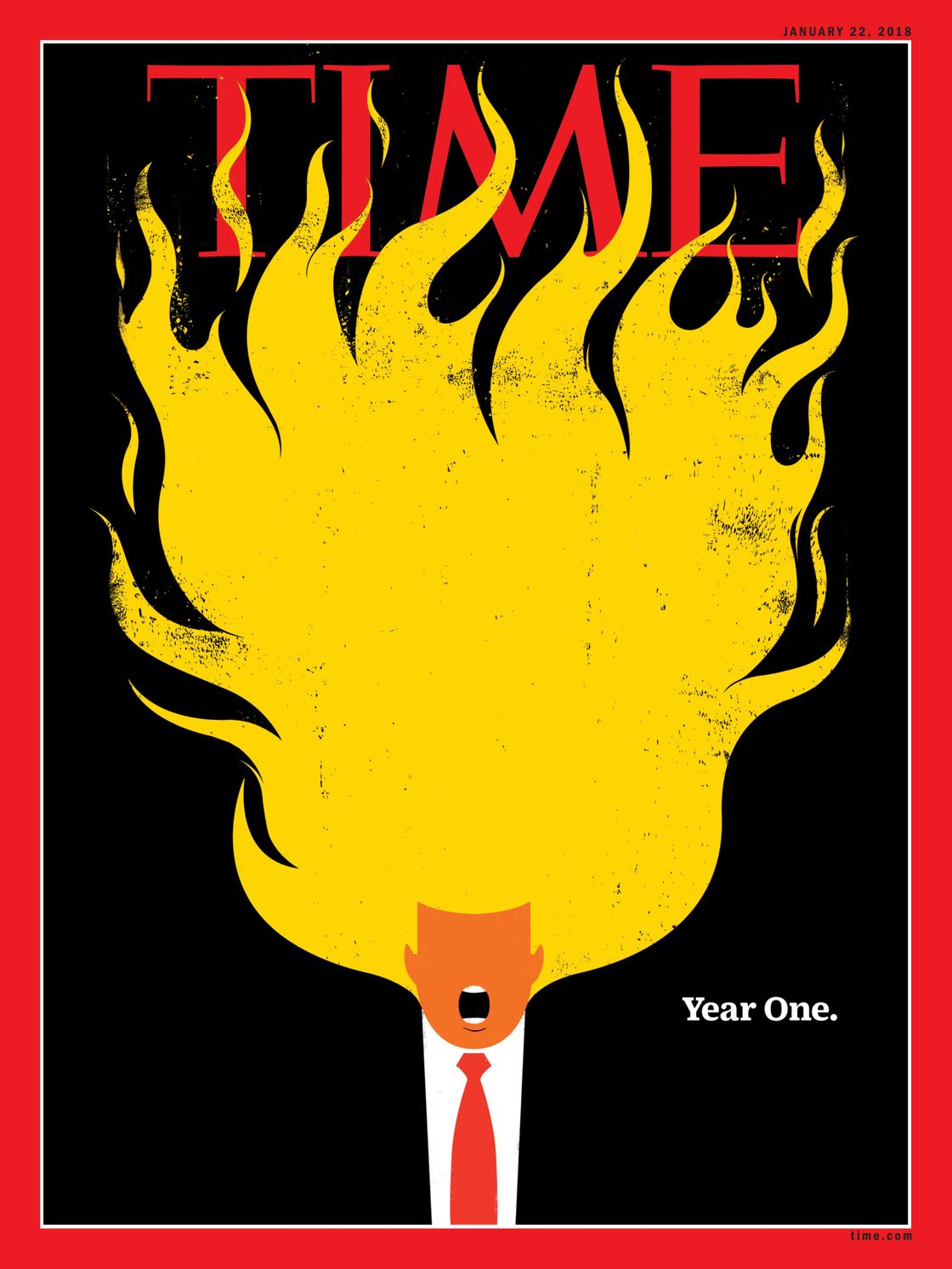
In the art world, US President Donald Trump is kind of having a moment. As a traditionally liberal and anti-establishment segment of society, it might feel disconcerting to think that a slew of artistic productivity is being sparked by the Republican politician. However, it’s not just right-wing sympathising artists like Jon McNaughton
who have found inspiration in Trump, and many portrayals of him are far from flattering or conciliatory.
In particular, illustrator Edel Rodriguez has found fame with his illustrations of Trump for magazines including TIME and Germany’s Der Spiegl. Born in Cuba in 1971, Rodriguez emigrated to the United States as a political refugee at the age of nine, one of around 125,000 Cubans fleeing a country under the dictatorship of Fidel Castro. His background has left many of the political disputes at the centre of Trump’s Presidency close to Rodriguez’s heart.
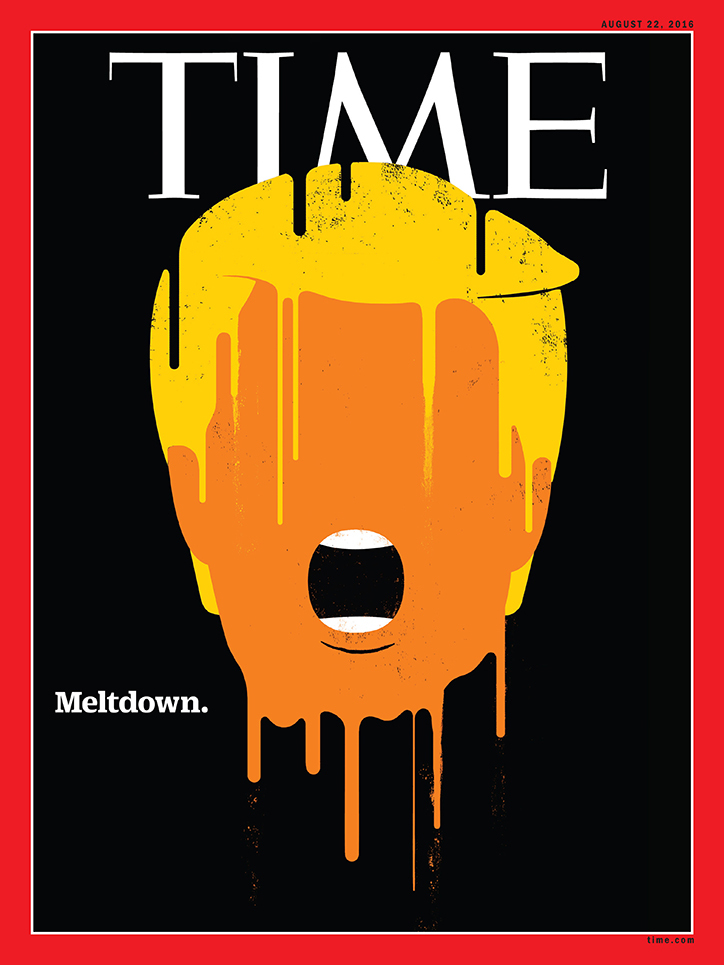
Rodriguez has been an illustrator for TIME magazine since 1994, when he was appointed art director at the magazine. It was his illustration for TIME’s Meltdown issue in August 2016, however, that first really sent the public into a frenzy. This was followed by his front cover for the publication in October of the same year; an issue titled Total Meltdown. While these two issues were focused around the suggestion that the media mogul’s presidential campaign was in laughable chaos, Trump nevertheless succeeded in winning the election in November of 2016.
It is this absurdity that Rodriguez’s illustrations capture; that a politician whose very rhetoric revolved around his own insistence that he wasn’t a real politician; a man who said that he could walk down the street and shoot someone and still not lose any supporters
, could be voted president of one of the most powerful countries in the world.
“The covers have a clarity and vibrancy which leave no room for ambiguity. They stand out, bold and stark, representing to us a political situation we cannot ignore”
The illustrator has said that he doesn’t set out to create controversy—as he points out, people will find offence in the strangest of things, while conversely failing to get angry about the things that really matter. And yet, when controversy arrives, he welcomes it because it shows he’s hit upon something worth having a conversation about. Art has a unique way of provoking conversation, of whittling a complicated story or political situation down into a single graspable truth. Made with a combination of painting and digital techniques, the simplicity of Rodriguez’s images—he is inspired by pop art’s bold block colours and stark lines—has influenced many, and his illustrations have found themselves on placards at protests around the world.
The covers have a clarity and vibrancy which leave no room for ambiguity. They stand out, bold and stark, representing to us a political situation that we cannot ignore, hoping it will go away. Despite the fact that the only distinguishable facial feature of this cartoon figure is his mouth, splashes of Trump’s signature wotsit-orange and bleach-blonde yellow make the figure’s identity unmistakeable. Of course, it is significant that his face is just a mouth in a wash of orange. His is a mouth that never shuts up; that spews out the messages of bigotry and entitlement, safe in the assumption that no one will be able to silence it. The images are absurd, but then so is our collective political situation.
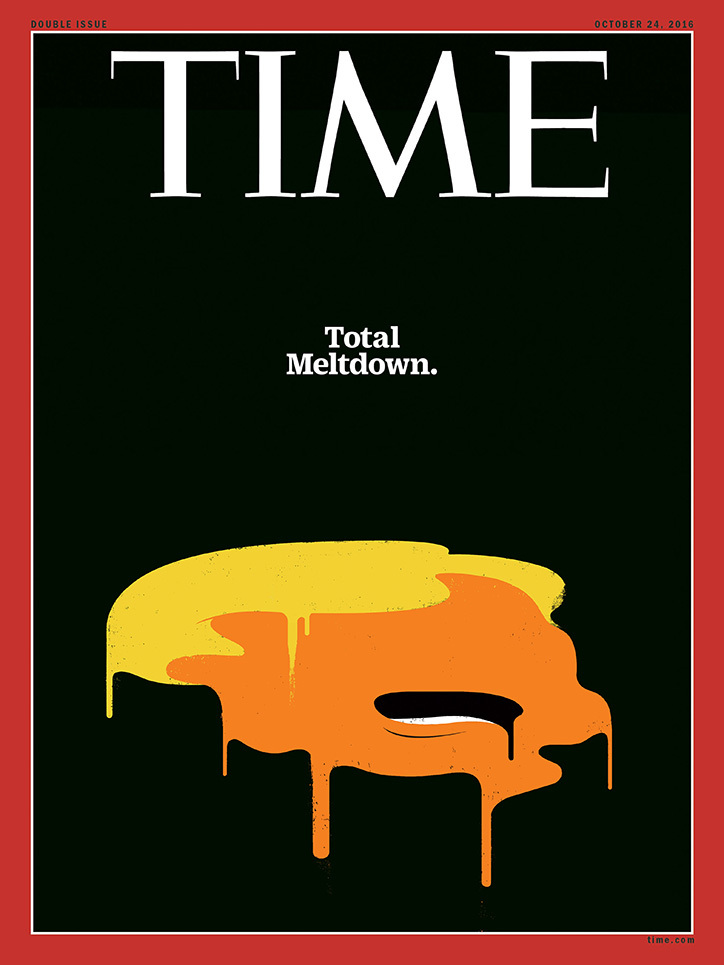
The illustrative elements and style of Rodriguez’s images seem to emphasise that the fundamental issue at the root of our political absurdity remains ongoing and unchanging. His images are everywhere and their ubiquity forces us to recognise that, while Trump is an American phenomenon, his reach extends beyond the borders of the US. Furthermore, he is a part of something bigger, and the political position he represents threaten and resonate all around the globe.
When Trump visited the UK in June 2019, advertising agency Wieden and Kennedy staged an exhibition in London’s Hanbury Street. Featuring Rodriguez’s TIME covers, along with more UK specific illustrations, such as his Brexit is Toxic, the exhibit was titled Hell is Empty. The title refers to a line from Shakespeare’s The Tempest; “Hell is empty, and all the devils are here.” A disconcerting image indeed, but at the root of Rodriguez’s illustrations is an imploring assertion that we must not let the devils make hell our new normal.
